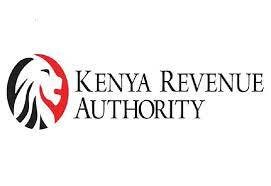KRA readies system to collect housing tax from next month
The Kenya Revenue Authority (KRA) made modifications to its automated tax payment system, iTax, allowing it to collect the contentious housing tax even before the Finance Bill passes through Parliament.
The KRA has altered the P10 Form, typically utilized for monthly PAYE (Pay-as-You-Earn) filings, to facilitate the collection of this tax. Assuming President William Ruto assents to the Finance Bill and the tax receives approval in its third reading, employers will begin deducting and remitting the tax starting from July 1, 2023.
The housing tax has faced significant opposition from both workers and employers. Nikhil Hira, a tax expert based in Nairobi, suggests that the KRA is taking a proactive approach to start collecting this unpopular tax. Hira remarks that the iTax system has been slow to adapt in the past. Still, this modification indicates the tax authority's readiness to implement the tax as soon as it receives legal authorization.
CAPITAL MARKETS
1. Counties seek Sh100bn devolution bond
Governors and senators united their efforts in advocating for a devolution bond to address the ongoing issue of delayed funds to county governments from the National Treasury.
As the fiscal year draws to a close, devolved units are facing significant delays in receiving their May and June allocations, amounting to a staggering total of Sh61.1 billion.
In an attempt to alleviate this persistent problem that has hindered the functioning of devolved units, the Senate and the Council of Governors have agreed to collaborate with the Treasury on this proposed solution.
In a joint communiqué issued by Council of Governors chairperson Anne Waiguru and Senate Speaker Amason Kingi, it was announced that discussions would be initiated between the Senate, Council of Governors, and the National Treasury to introduce a devolution bond.
The purpose of this bond would be to provide the Treasury with the necessary resources to promptly meet requests for exchequer releases, ensuring timely and consistent funding for devolved units.Click here to read the full article
2. Airtel Africa to list Kenya unit on the NSE
Airtel Africa revealed its readiness to list its Kenyan operations on the Nairobi Securities Exchange (NSE) should the government maintain the condition as part of its licensing regulations.
The announcement came amid ongoing discussions with regulators and Airtel's ambitious plans to introduce a high-speed fifth-generation (5G) mobile broadband network in the following month, positioning itself as a formidable competitor to Safaricom, the dominant player in the market.
According to Segun Ogunsanya, the Group CEO of Airtel Africa, the company is committed to fulfilling its license obligations, which include the requirement to list in Kenya.
Once listed, Kenyan investors will have the opportunity to trade shares in Airtel Africa, making it the second-largest telecommunications company in the country, trailing behind Safaricom
Click here to read the full article
ECONOMY
Kenya projects that the shilling will fall to Ksh 150 against the dollar by next June
According to a new report by the Treasury, the shilling could weaken to 150.76 against the US dollar by the time the Eurobond repayment is due in June.
This projection highlights the persistent pressure on the country's exchange rate, as the shilling has already been hitting record lows and recently breached the 140-mark.
Data from the Central Bank of Kenya (CBK) shows that the shilling was trading at an average of 140.2 against the dollar last week.
The Treasury's report reveals that the country will pay a total of Sh301,513,774,986 for the $2 billion international sovereign bond.
This translates to an exchange rate of 150.76.
Previously, in March, the Treasury had estimated the redemption of the Eurobond at Sh241.75 billion, which would have resulted in an exchange rate of Sh120.87. However, the current projection reflects the continuous depreciation of the shilling and the challenges posed by a dollar shortage exacerbated by interest rate hikes in advanced economies.
Click here to read the full article
Parliament approves conversion of sh 10trn debt ceiling to anchor
Members of Parliament (MPs) approved the Public Finance Management (Amendment) Bill 2023 through its Second Reading.
Effectively, they have granted approval for the conversion of the country's debt ceiling, shifting from the current limit of Sh10 trillion to a debt anchor expressed as a percentage of the gross domestic product (GDP). This move marks a significant step towards aligning Kenya with global best practices, as advocated by the International Monetary Fund (IMF).
The Public Debt and Privatisation Committee, responsible for overseeing debt management, has endorsed a debt anchor threshold set at 55 percent of the GDP in present value terms.
However, the committee has allowed a slight deviation of up to five percent to account for the current debt threshold, which currently stands at 60 percent.
One significant alteration made by the committee involved the removal of a clause that required the Treasury Cabinet Secretary to provide an explanation to Parliament if the Finance Ministry exceeded the debt anchor by engaging in excessive borrowing.
Click here to read the full article
ENERGY
The government floated a Sh17bn bond to pay oil marketers
The government issued a bond on Tuesday aimed at raising billions of shillings to partially settle the Sh45.8 billion debt owed to oil marketers from the discontinued fuel subsidy scheme.
A recent communique obtained by the Business Daily revealed that the government plans to raise Sh17.5 billion in the first tranche of the three-year bond, which closed on Friday last week. The interest rate for this tranche has been fixed at 14.22 percent.
Due to the limited fiscal space in the Exchequer for the current financial year, the government has decided to split the remaining Sh28 billion bond into a second tranche, scheduled to be issued in the second week of the following month.
The government acknowledged that this division became necessary to accommodate the prevailing fiscal constraints.
Treasury has been struggling to compensate the oil marketers for the fuel stabilization scheme that was rolled out in April 2021 in a bid to cushion consumers against high pump prices. Oryx Energy is yet to be paid Sh3.48 billion followed by Ola at Sh2.31 billion, Galana Oil (Sh1.24 billion) and Gapco (Sh1.01 billion).
Click here to read the full article
Globeleq plans battery at 52MW Malindi plant
UK-based private power firm Globeleq has announced plans to install a plant battery at its 52-megawatt Malindi solar unit in Kenya. The battery will help extend the supply of electricity to peak evening hours when demand is at its highest.
According to the Energy and Petroleum Regulatory Authority (Epra), Kenya experiences peak demand between 8pm and 8.30pm in the coastal region, and between 7.30pm and 8pm in the rest of the country. By incorporating energy storage, Globeleq aims to address the challenge faced by solar power plants globally in meeting high-demand periods.
The Malindi solar plant, which commenced commercial production in December 2021 with an initial injection of 40MW into the national grid, is majority-owned by British International Investment Plc (BII).
Richard Charlton, BII's head of infrastructure equity for Africa and Pakistan, expressed the operator's intention to expand the plant's capacity in order to provide a higher load of constant power. However, specific details such as the expected capacity of the battery and the cost of the expansion have not been disclosed, as the project is currently in the design phase.
Kenya currently has a total solar installed capacity of 210MW spread across five plants, including Garissa Solar, Cedate, Selenkei, Malindi Solar, and Alten Solar.
Click here to read the full article
WHAT YOU MUST HAVE MISSED
Employers who fail to transfer their employees' housing levy contributions will face fines equivalent to two percent of the outstanding funds every month, according to the proposed amendments to the Finance Bill, 2023. The Finance and National Planning Committee of the National Assembly has suggested these revisions to support the government’s ambitious budget of Sh3.6 trillion. As part of the proposed changes, the Employment Act of 2007 will be amended to enforce the two percent penalty on employers, who will be obligated to remit the deductions within nine working days after the end of each month.
Centum secured a special economic zone (SEZ) license for its Two Rivers development project. The SEZ license covers over half of the development's total area, which spans 106 acres. With this license, Centum aims to leverage the business-friendly regulations for SEZ-domiciled companies to attract global service firms.
To be known as the Two Rivers International Finance and Innovation Centre (Trific), the SEZ occupies 64 acres within the Two Rivers development. Centum has designated Trific as a hub for international finance and innovation. The zone offers 150,000 square feet of premium office space divided into two blocks: Trific North and Victoria Towers. Additionally, the zone includes the Holiday Inn Hotel and incorporates Centum's residential projects, namely Mizizi, Riverbank, Cascadia, and Lofts.
President Ruto bypasses EAC barrier to EU trade deal
Kenya and the European Union (EU) sealed a groundbreaking trade agreement, solidifying one of the most ambitious deals between the EU and an African nation.
This agreement provides Kenya with immediate duty-free and quota-free access for all its exports to the 27-member bloc, while also gradually reducing import duties on European goods. The Economic Partnership Agreement (EPA) between Kenya and the EU, reached in October 2014 as part of the East African Community, was formally endorsed in Nairobi on Monday, pending approval by both countries' parliaments. The implementation of this long-awaited treaty faced significant obstacles after other member states of the East African Community declined to support it.









